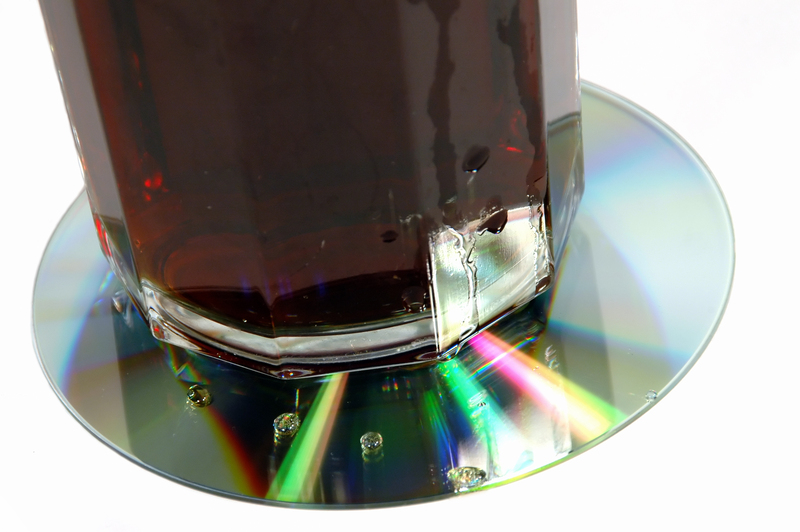Boost Your Well Being Through Clutter Removal and Hoarder Clean Up
In today's fast-paced world, the spaces we inhabit greatly impact our mental, emotional, and even physical health. If you've ever felt overwhelmed by the mess in your home or workplace, you're not alone. Clutter can sneak up on anyone, contributing to stress, anxiety, and a reduced sense of overall well-being. In severe cases, where hoarding becomes a challenge, the effects on individual lives--and the lives of loved ones--can be profound. By understanding the importance of clutter removal and hoarder clean up, you can start transforming your environment and, most importantly, your quality of life.

Understanding the Impact of Clutter on Well Being
Clutter is more than just an eyesore. It extends beyond physical disorganization and mess; clutter can negatively influence your mental state, motivation, and productivity. Research continuously demonstrates that our external environment greatly shapes our internal emotions.
- Mental Health: Clutter increases levels of the stress hormone cortisol, making you feel stressed and anxious.
- Decision Fatigue: Messy environments make it harder to focus and make decisions, causing "decision fatigue."
- Sleep Disruption: Cluttered bedrooms can interrupt sleep patterns, leading to fatigue and irritability.
- Reduced Creativity: A chaotic space can stifle your creativity and block fresh ideas.
- Relationship Strain: Clutter can breed tension in households, impacting relationships with family and roommates.
Is It Clutter Or Hoarding?
It's important to differentiate between typical clutter and hoarding disorder. Clutter is a natural accumulation of things that can be sorted, organized or discarded. Hoarding disorder, however, is a recognized mental health condition where individuals have a persistent difficulty discarding possessions, regardless of value.
- Clutter: Temporary, usually addressable by cleaning, organizing, or routine tidying up.
- Hoarding: Chronic, often accompanied by distress at the idea of parting with items, causing unsafe or unhealthy living conditions.
The Benefits of Clutter Removal for Well Being
Clearing away clutter not only creates a more beautiful living space--it directly boosts your mood, improves focus, and even supports healthier behaviors. Let's explore the key benefits:
- Reduces Stress & Anxiety: A tidy space calms the mind and lowers anxiety levels.
- Improves Productivity: Clean, organized areas help you focus and get tasks done more efficiently.
- Enhances Physical Health: Fewer piles mean less dust, mold, and allergens. It also reduces the risk of trips and falls.
- Promotes Better Sleep: A clutter-free bedroom supports restful and rejuvenating sleep.
- Fosters Pride and Control: Taking control of your environment imparts a sense of accomplishment and pride.
Clutter Removal Strategies That Actually Work
1. Start Small and Build Momentum
The idea of tackling an entire house or even one room can seem overwhelming. Begin with a manageable area--a drawer, a shelf, or a countertop. The sense of achievement will motivate you to keep going.
2. Use the Four-Box Method
Get four boxes for each category: Keep, Donate, Sell, and Trash. Everything you touch should go into one of these boxes. This forces immediate decision-making and reduces indecision.
3. Implement the "One In, One Out" Rule
Each time you bring in a new item--whether clothing, books, or kitchen gadgets--commit to removing another item. Over time, this strategy helps maintain a clutter-free home.
4. Set Time Limits
Set a timer for 10, 20, or 30 minutes of cleaning per day. You'll be surprised how much you can get done in short, focused bursts.
5. Seek Support
Don't be afraid to enlist the help of friends, family, or professionals, especially for hoarder clean up jobs. They can provide emotional support and hands-on assistance.
Hoarder Clean Up: A Compassionate Approach
When clutter piles turn into hoarding situations, the clean up process demands patience, empathy, and sometimes professional intervention. Hoarding is a complex issue, usually rooted in deeper emotional and psychological factors.
Why Professional Hoarder Clean Up Matters
- Safety: Hoarding situations often involve structural risks, fire hazards, molds, and pests.
- Nonjudgmental Support: Professionals bring experience and compassion, helping to ease the distress of disposal.
- Organization: Experts use tested systems to sort, organize, and remove debris efficiently.
- Proper Disposal: Certain items, like biohazards, must be disposed of safely according to regulations.
Steps in a Successful Hoarder Clean Up
- Assessment: Professional crews inspect the site and create a custom clean up plan.
- Sorting: Items are sorted (keep, donate, dispose of) with the involvement and input of the homeowner.
- Removal: Clutter and unwanted items are carefully removed--sometimes room by room--to minimize overwhelm.
- Cleaning & Sanitizing: After removal, the space is thoroughly cleaned and sanitized.
- Restoration: Some projects involve minor repairs or pest treatments to restore the home to a safe, livable standard.
Addressing Emotional Attachment
Clutter removal and hoarder clean up often involve items of sentimental value. For those struggling, parting with possessions--no matter how trivial they may seem to others--can trigger grief, fear, or guilt. Empathy is essential. When assisting a loved one or undertaking your own journey, acknowledge the emotional difficulty and proceed step by step.
Tips to Prevent Clutter from Returning
Once you've cleared your space, maintaining that tranquility is essential. Here are effective tips to avoid backsliding:
- Designated Spaces: Assign every item a "home" so it doesn't migrate around your space.
- Regular Decluttering Sessions: Schedule monthly or quarterly reviews to remove items you no longer need.
- Mindful Purchasing: Buy only what you truly need, avoiding impulse purchases that create future clutter.
- Daily 10-Minute Tidy-Up: Set aside 10 minutes at the end of each day for a quick clean up.
- Stay Motivated: Celebrate your tidy space by inviting friends over, redecorating, or enjoying a hobby in your renewed environment.
The Link Between Decluttering and Mental Health
Decluttering is more than a physical act; it can be deeply transformative on an emotional level. Experts highlight the psychological benefits as among the most rewarding aspects of the process.
- Sense of Control: Organizing your space imparts a feeling of mastery and autonomy.
- Stress Reduction: An orderly environment signals safety and security, calming the nervous system.
- Improved Focus: With fewer distractions, your mind can concentrate on tasks, creativity, and relaxation.
- Boosted Self-Esteem: Taking charge of clutter, especially after a period of hoarding, can provide a visible sense of accomplishment.
Helping a Loved One Struggling With Hoarding
Assisting someone who suffers from hoarding disorder can be challenging and requires patience. Clutter and hoarding clean up is often about more than just cleaning--it involves trust, understanding, and ongoing support.
- Build Trust: Avoid judgment or criticism. Instead, show empathy and listen to their fears.
- Encourage Professional Help: Gently suggest counseling, therapy, or support groups that address hoarding behaviors.
- Offer Consistent Help: Be available for regular, small decluttering sessions rather than occasional, overwhelming ones.
- Respect Their Pace: Move at the individual's comfort level. Forcing disposal of items can damage trust and progress.
Decluttered Living: The Gateway to a Happier, Healthier Life
Imagine stepping into a clean, calm, and welcoming environment, free of chaos. This is more than mere aesthetics--it's a path to boosting your well being. Whether you're dealing with common household clutter or tackling a full-scale hoarder clean up, the transformation can be life changing.
- Less is More: Embrace simplicity and focus on the possessions that truly add value to your life.
- Enjoy the Present: With clutter and hoarding under control, there's more time and space for joy, connection, and personal growth.
- Ongoing Journey: Good habits and periodic reset sessions keep your environment--and your mindset--healthy.

Conclusion: Small Steps, Big Rewards
Boosting your well-being through clutter removal and hoarder clean up isn't about perfection; it's about progress. Each step you take, big or small, brings you closer to a serene, balanced, and healthier life. The journey may be gradual, but the rewards--a peaceful mind, increased energy, and renewed joy--are well worth it.
Frequently Asked Questions (FAQ)
What is the fastest way to declutter my home?
- Start with one area at a time, use the four-box method, and set a timer for focused decluttering sessions.
Can decluttering really improve my mental health?
- Absolutely! Decluttering can lower anxiety, improve mood, and create a sense of control.
When should I consider professional hoarder clean up?
- If the home is unsafe or the clutter is overwhelming, a professional team can help restore the space safely and efficiently.
How can I help a hoarder without being pushy?
- Offer empathy, go at their pace, and encourage professional assistance when needed.
How often should I declutter?
- Monthly or quarterly sessions are ideal, with short daily or weekly tidy-ups to keep clutter in check.
Start your journey toward a healthier, happier life today by embracing the transformative power of clutter removal and hoarder clean up. Your well-being--and your future self--will thank you!